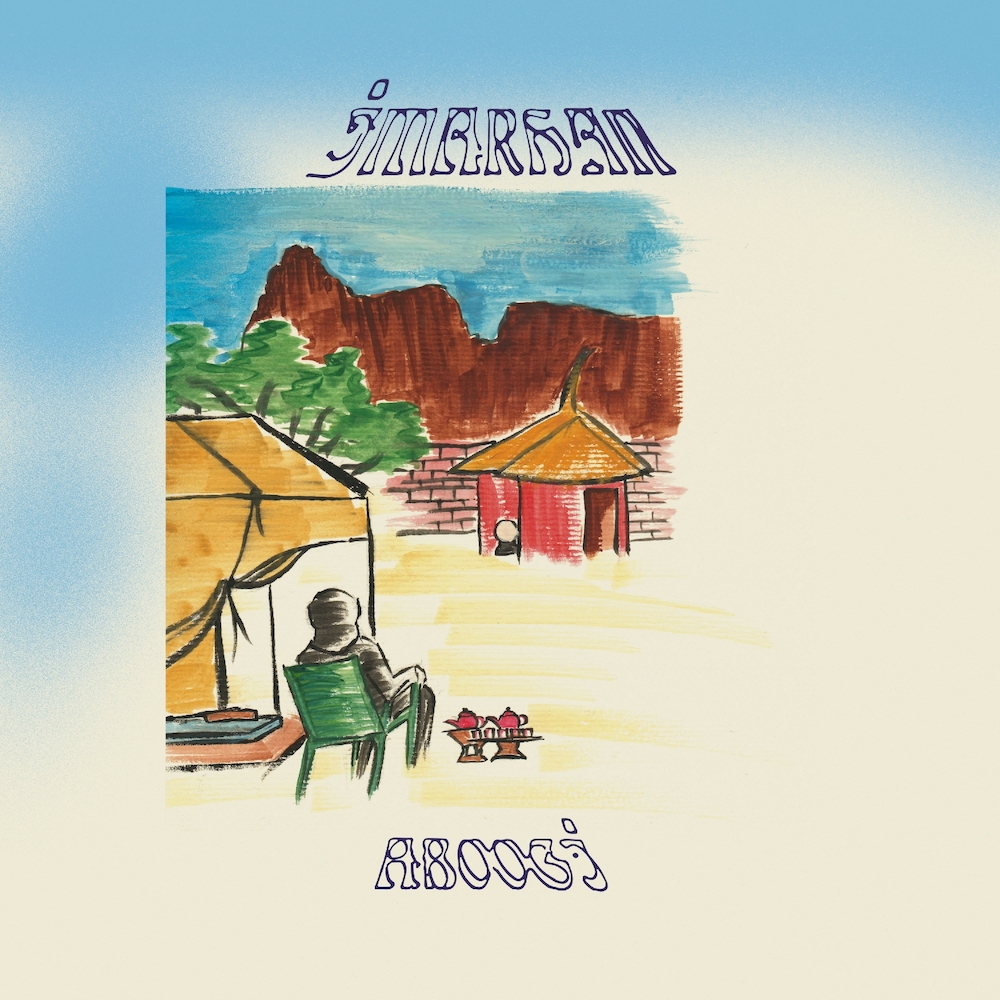Maybe it has to do with my aspirations to plan a trip to North Africa, but when Imarhan’s third album Aboogi came across the channels, I could not resist diving into their tribute to the Tuaregs, the ‘Blue Men’ or nomads of Tamanrasset, Algeria. To understand the music is to appreciate its origins and how the arts can create a social commentary. Algeria was under French control for much of the 20th century. Post-colonial Algeria suffered under authoritarian rule. The South endures particular hardship being economically neglected by the North.
The quintet’s recording facility broke ground in 2019 and became the first professional studio in Tam, as it is known locally. This allowed the group to create on their native soil and to invite musicians to become a part of the fabric of their music. An inspiring locale with its rugged landscapes, citrus trees, and sandstone, Tam sits in the middle of the Sahara, high above the sea at 4,500 feet. It is farther from Algeria’s capital city Algiers than Algiers is from Paris, where they recorded additional percussion on “Laouni”.
While the lyrics may be cryptic to audiences, the emotion shared in the vocals are translation enough to understand the story. “Achinkad” opens acoustically with a solo guitar and deftly played hand drums. The band leader Iyad Moussa Ben Abderahmane (aka Sadam) joins with soft vocals. The song thins to the lone vocal and drum, then a pause as it launches into chants and rhythm that sets the energy flowing into the second track “Derhan”, which defies you not to want to dance along with the triumphant chants and incessant groove.
The music feels traditional, yet modern and accessible. There is a bluesy reference throughout. The chords and strums of “Temet” are reminiscent of Mark Knopfler’s guitar hammer-ons in Dire Straits’ classic “Brothers in Arms”. The album’s ubiquitous hand claps draw the listener into a communal celebration of life through the music.
Aboogi celebrates global diversity and community in the selection of collaborators. Two songs feature guest vocalists from Tam including Abdallah Ag Alhousseyni from the group Tinariwen (“Tindjatan”) and the poet Mohamed Ag Itlale, aka Japonais (“Tamiditin”), who passed away shortly after the recording of the album. Their voices give a fresh feel to the verses, while the music and vocals in the chorus sections bring it back to the inimitable Imarhan sound.
The mid-point of the album, “Assossam” brings a union of voices that sounds at once culturally derivative while bringing a modern aesthetic to the presentation. The guitar intro is funky and fun, and the voices chime in to create an uplifting, joyful jam.
Sudanese singer Sulfa Elyas contributes a verse and the final lines to the guitar ballad ”Taghadart”. By turning up the cavernous reverb while turning down her dry vocal, she drifts away as she asks: “You betrayed me / didn’t you?”
The final track “Adar Newlan” opens with the flutter of a solo guitar, pulsing kick drum hits and the swinging groove of shakers. Super Furry Animals’ Gruff Rhys sings a song for their heroes in his native Welsh tongue. As in many of the tracks, the structural changes can be abrupt, but the rhythm and melodies carry the listener across the emotional spectrum from jubilation to the heartbreak of the current struggles of youth from Tam.
Deep listen to Aboogi and dream to of the desert, of the mud houses still standing, of the culture, of the lives and struggles of a distant tribe and appreciate what Sadam describes as: “the colors of Tamanrasset, what we experience in everyday life… space to the wind and the natural energies, to the sun and the sand.”

